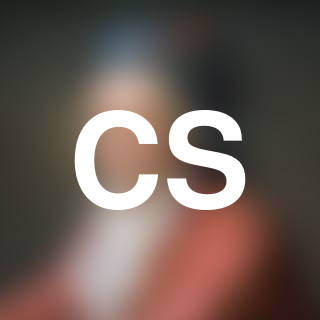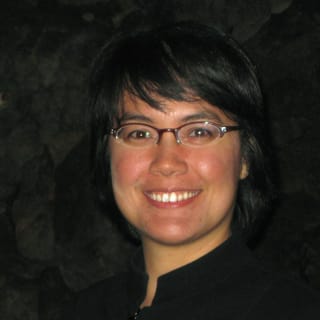
Join to View Full Profile
Icahn School of Medicine at Mount Sinai1000 10th Avenue, 10th Floor, Room 10G47New York, NY 10019
Phone+1 212-523-8276
Dr. Mayberg is on Doximity
As a Doximity member you'll join over two million verified healthcare professionals in a private, secure network.
- Gain access to free telehealth tools, such as our “call shielding” and one-way patient texting.
- Connect with colleagues in the same hospital or clinic.
- Read the latest clinical news, personalized to your specialty.
Summary
- Helen Mayberg, MD is Professor of Neurology, Neurosurgery, Psychiatry and Neuroscience, and the Mount Sinai Professor in Neurotherapeutics at the Icahn School of Medicine. Known for studies of brain circuits in depression and for her pioneering deep brain stimulation research, Dr. Mayberg moved this year from Emory University in Atlanta to Mount Sinai in New York as the Founding Director of the Center for Advanced Circuit Therapeutics. Over her career in the United States and Canada, her teams have worked to combine cutting-edge imaging strategies, quantitative behavioral metrics, and rigorous clinical trials to define brain-based biomarkers that will optimize treatment selection for individual patients with depression. Extending this theme, her new Center at Mt Sinai will provide an integrated platform to catalyze collaborative translational research, bringing together clinicians from neurology, neurosurgery, psychiatry and psychology and experts from neuroscience, imaging, engineering, and computational modeling within a unique, shared ecosystem and a common mission to advance precision surgical treatments for patients with complex neuropsychiatric disorders. Dr. Mayberg trained in Neurology at Columbia's Neurological Institute in New York, followed by a research fellowship in nuclear medicine at Johns Hopkins. She is a member of the National Academy of Medicine, The American Academy of Arts and Sciences and the National Academy of Inventors, among other honors, and participates in a wide variety of scientific and advisory activities across multiple fields in neuroscience.
Education & Training
 Johns Hopkins UniversityResidency, Nuclear Medicine, 1985 - 1987
Johns Hopkins UniversityResidency, Nuclear Medicine, 1985 - 1987 New York Presbyterian Hospital (Columbia Campus)Residency, Neurology, 1982 - 1984
New York Presbyterian Hospital (Columbia Campus)Residency, Neurology, 1982 - 1984 University of Southern California/Los Angeles General Medical Center (USC/LA General)Internship, Internal Medicine, 1981 - 1982
University of Southern California/Los Angeles General Medical Center (USC/LA General)Internship, Internal Medicine, 1981 - 1982 Keck School of Medicine of the University of Southern CaliforniaClass of 1981
Keck School of Medicine of the University of Southern CaliforniaClass of 1981
Certifications & Licensure
 CA State Medical License 1982 - Present
CA State Medical License 1982 - Present NY State Medical License 2017 - 2026
NY State Medical License 2017 - 2026 GA State Medical License 2004 - 2021
GA State Medical License 2004 - 2021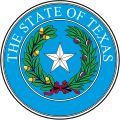 TX State Medical License 1992 - 2005
TX State Medical License 1992 - 2005 MD State Medical License 1985 - 1993
MD State Medical License 1985 - 1993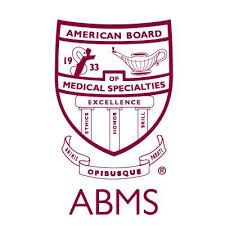 American Board of Psychiatry and Neurology Neurology
American Board of Psychiatry and Neurology Neurology
Awards, Honors, & Recognition
- Elected Member Institute of Medicine, 2008
- Whos Who in Medicine and Healthcare Marquis Whos Who
Clinical Trials
- Identifying Factors That Predict Antidepressant Treatment Response Start of enrollment: 2006 Aug 01
- Deep Brain Stimulation for Treatment Resistant Depression Start of enrollment: 2006 Sep 01
- Imaging Predictors of Treatment Response in Depression Start of enrollment: 2006 Aug 01
- Join now to see all
Publications & Presentations
PubMed
- Metabolomics signatures of serotonin reuptake inhibitor (escitalopram), serotonin norepinephrine reuptake inhibitor (duloxetine) and cognitive-behavioral therapy on ke...Sudeepa Bhattacharyya, Siamak MahmoudianDehkordi, Matthew J Sniatynski, Marina Belenky, Vasant R Marur
Journal of Affective Disorders. 2025-04-15 - The thalamus: Structure, function, and neurotherapeutics.Lara V Marcuse, Mackenzie Langan, Patrick R Hof, Fedor Panov, Igancio Saez
Neurotherapeutics. 2025-03-01 - Towards accredited clinical training in brain stimulation: Proceedings from the brain stimulation subspecialty summits.Shan H Siddiqi, Leo Chen, Nicholas T Trapp, Noreen Bukhari-Parlakturk, Joseph J Taylor
Brain Stimulation. 2025-02-21
Journal Articles
- Response Rate Profiles for Major Depressive Disorder: Characterizing Early Response and Longitudinal NonresponseCharles B Nemeroff, W Edward Craighead, Helen S Mayberg, Boadie W Dunlop, Depression and Anxiety
- StimVision Software: Examples and Applications in Subcallosal Cingulate Deep Brain Stimulation for DepressionRobert E Gross, Helen S Mayberg, Neuromodulation: Technology at the Neural Interface
Press Mentions
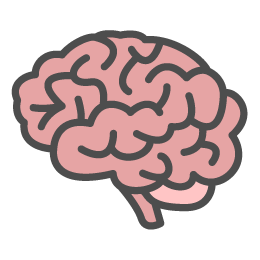 Abbott’s Brain Stimulation Trial for Depression Kicks off at Mount SinaiMarch 6th, 2025
Abbott’s Brain Stimulation Trial for Depression Kicks off at Mount SinaiMarch 6th, 2025 Mount Sinai Is First in the Nation to Perform Deep Brain Stimulation Implant as Part of Clinical Trial for DepressionMarch 5th, 2025
Mount Sinai Is First in the Nation to Perform Deep Brain Stimulation Implant as Part of Clinical Trial for DepressionMarch 5th, 2025 Insights into Brain Connectivity May Help Clinicians Choose Between Talk Therapy and Medications for DepressionApril 5th, 2023
Insights into Brain Connectivity May Help Clinicians Choose Between Talk Therapy and Medications for DepressionApril 5th, 2023- Join now to see all
Grant Support
- Establishing the anatomical and functional mechanisms of white matter deep brain stimulationICAHN SCHOOL OF MEDICINE AT MOUNT SINAI2023–2028
- Establishing the anatomical and functional mechanisms of white matter deep brain stimulationICAHN SCHOOL OF MEDICINE AT MOUNT SINAI2023–2028
- Electrophysiological Biomarkers to Optimize DBS for DepressionICAHN SCHOOL OF MEDICINE AT MOUNT SINAI2017–2024
- Emory-Mssm-Gsk-Nimh Collaborative Mood And Anxiety Disorders InitiativeNational Institute Of Mental Health2009–2011
- Collaborative Mood Disorders InitiativeNational Center For Research Resources2010
- Primary Research Project: Functional MRINational Institute Of Mental Health2008–2010
- Predictors Of Antidepressant Treatment RESPONSE: The Emory CidarNational Institute Of Mental Health2008–2010
- Operations, Clinical Assessments And Adminstrative CoreNational Institute Of Mental Health2008–2010
- Administrative CoreNational Institute Of Mental Health2009
- Imaging Predictors Of Treatment Response For DepressionNational Institute Of Mental Health2006–2009
- Imaging Neural Substrates Of Early Life Stress In Major DepressionNational Institute Of Mental Health2007–2008
- Imaging Neural Substrates Of Early Life Stress In MDNational Institute Of Mental Health2004–2006
- Fluoxetine Effects On Mood, Cognition And MetabolismNational Institute Of Mental Health1994–1996
- Fluoxetine Effects On Mood, Cognition &MetabolismNational Institute Of Mental Health1991–1992
Viewing the full profile is available to verified healthcare professionals only.
Find your profile and take control of your online presence:





